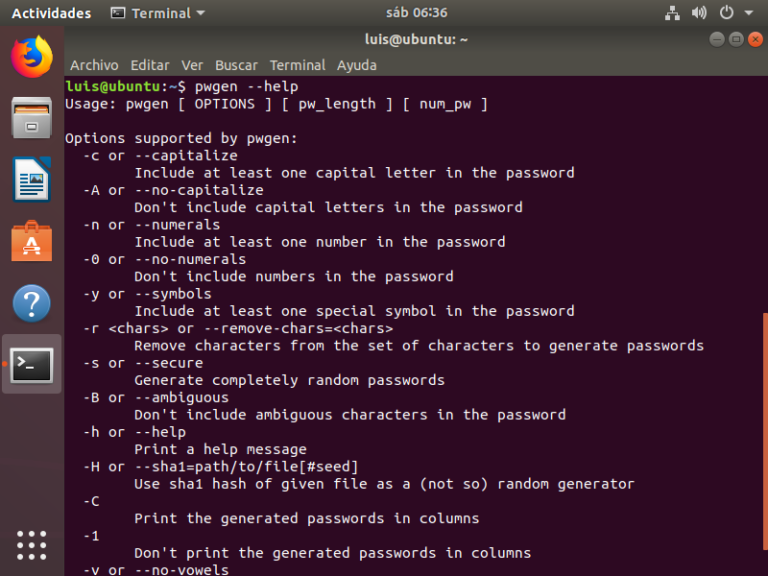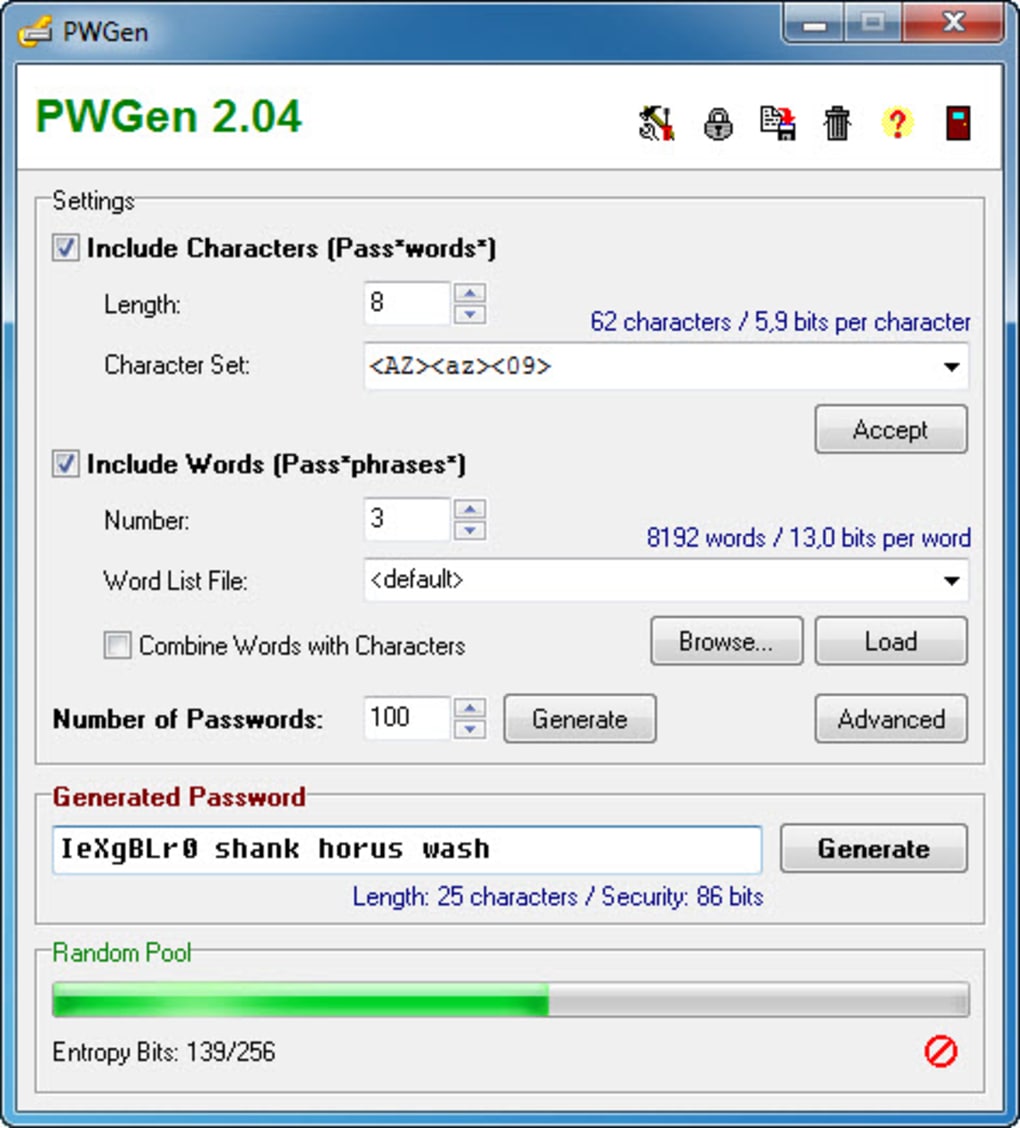

Set this to the same as -L/-max-length to use a fixed length. l, -min-length= The minimum length for passwords use 0 for no minimum limit. e, -explicit-chars= If specified, ignore all charset selection and only use these characters to select from. Can be specified multiple times with multiple chars per switch. d, -disable-chars= If specified, these chars should be explicitly excluded from the charset(s). If not specified, this is random (if in the charset). Y, -count-extended= The number of minimum extended symbol characters. y, -count-symbols= The number of minimum simple symbol characters. N, -count-numbers= The number of minimum number characters. U, -count-lower= The number of minimum lowercase characters. u, -count-upper= The number of minimum uppercase characters. S, -enable-extended-symbols If specified, include the Extended Symbols charset (these characters may cause issues in some applications). s, -disable-symbols If specified, do NOT include the Simple Symbols charset. n, -disable-num If specified, do NOT include the Numerical (number) charset. a, -disable-alpha If specified, do NOT include the Alphabetical (letter) charset.
#Pwgen syntax password#
It will also offers various hashing of the generated password(s) and a separate tool ( pwverify) to verify a password against a hash. Will by default always generate 32-character-long passwords that do not contain symbols. the following in your ~/.bashrc, for instance, on Linux: export PWGEN_XLEN=32 Invocation argument/flag defaults can be specified by the variable name in. This is done for every single password generated.The order of characters in this generated password itself is then shuffled using crypto/rand as well.

#Pwgen syntax full#
The character set (or "charset" the full list of possible characters to use in a password) is predefined at invocation, but the selection of a character in that list is determined by a cryptographically-driven random function ( crypto/rand rather than simply math/rand).

PWGen generates cryptographically-sound (i.e.
#Pwgen syntax generator#
These are named after the software that generates passwords matching these patterns.A password generator written in Golang that offers highly-customizable generated password schemes. If this syntax is too complicated for you, the passgen binary also comes with some pattern presets, that you can use with the -p flag. This is a language that is often used for filtering or searching text-based content. I'm also a very happy used of regular expressions. I wanted it to be very flexible, so that you can easily create passwords with different shapes (like, 16 alphanumeric characters, or 4 english words). Popular computer comic XKCD #936 notes that long word-based passwords have more strength and memorability than special-character-based passwords:īased on this, I wanted to set out to build a tool that could help with generating random, strong passwords with different shapes. While previously, the advice was to use password policies (such as enforcing the use of special characters), current best practice is to avoid that 2, and instead to encourage long passwords. Ideally, passwords should be as long as possible 1. Choosing simpler passwords or reusing them across accounts makes dealing with them easier, but compromises their security. On the other hand, losing them means losing data or access to accounts. On the one hand, they are necessary for authenticating with services, and for decrypting drives. I have a bit of a love-hate relationship with passwords.


 0 kommentar(er)
0 kommentar(er)
